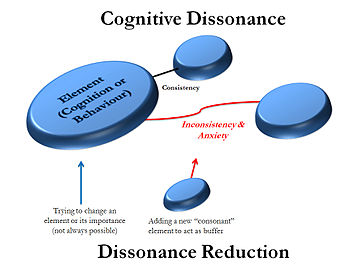Our quest for knowledge about our selves has led to a much better understanding of our brain, but not so much our mind, and yet we seem to be at a loss for reason now more than ever before.
Science has advanced our general understanding of perception, awareness, the nature of cognition, awareness and cognitive dissonance, and recent research has provided us with insight into how we mind and what we don't, how we do what we do, why we don't ,but not why.
But with all the evidence we have we seem to balk at the evidence, construe lavish theories to explain their apparent inconsistency with conventional ideas about thinking and thought.
We doubt the clear and present evidence because we believe it doesn't make sense, forsake to see what does if we change our perspective. and ignore the relevance of reason to maintain our own point of view.
We doubt the clear and present evidence because we believe it doesn't make sense, forsake to see what does if we change our perspective. and ignore the relevance of reason to maintain our own point of view.
As much as the body of neuroscience's knowledge has accrued, the following proof conclude why the evidence at hand do not translate to better mental health.
- Neurology, or the study of the nervous system is regarded as the experts domain on matters of the brain, yet neurons are only 10% of the wetware we use for cognition. Turns out what we thought of as 'scaffolding' to support neurons, and sheathing to protect and augment their function is as much part of our mental capacity as the nerves we know of.
- Mounting evidence that allude to psycho-social trauma. Related to violence, disintegration of family relation, and loss of social cohesion with early and late developmental injury, modern day society is implicated as the leading cause to a wide range of mental dysfunction.
- Inadequate social adaptation has been noted to result in adults due to inappropriate emotional expectations of adolescents prior to the brain reaching full mental maturity at the age of twenty five.
- The notion of happiness, generally considered as evidence of a positive life experience, is much more a outlook than a outcome. and much less a result than it is a point of view. Neither a consequence nor a reward, being happy is a state of being that we choose. And scientific evidence provide conclusive proof of the fact.
- Being absent from the present is as much a cause for deluded perception, limited awareness, and poor choice as it is reason for early drop-out and poor performance of college students. Much more than just a new age notion, being mindfully aware is associated with better awareness, heightened perception, an increase in happiness levels, improved health, and significantly higher levels of general life-satisfaction


